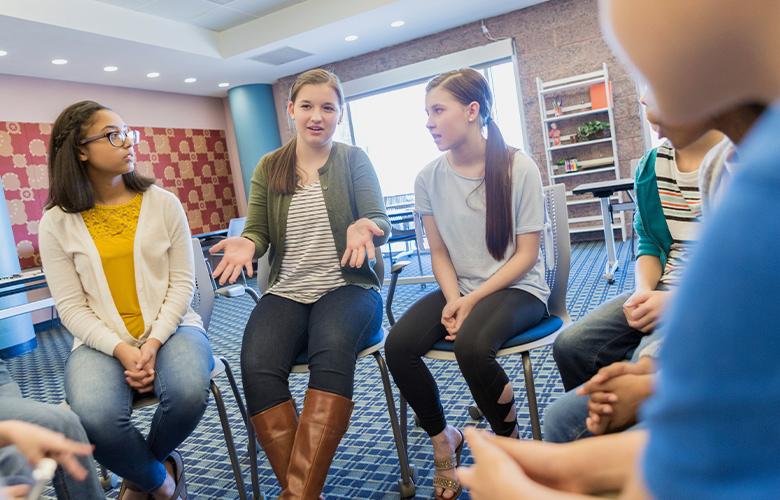
Millions of Americans watched the images of violence unfolding at the U.S. Capitol on January 6 with fear, anger, and disbelief. Among those witnessing these scenes of violence and destruction were our children.
Much has been written about how teachers can help children cope with the difficult emotions evoked by these images. But educators have another critical responsibility resulting from the attack on the Capitol, too. If we are to preserve our democracy, we need to teach our children what it means to be a responsible citizen in America.
One specific approach to promote responsible citizenry is to integrate social and emotional learning (SEL) into social studies and civics education curricula. SEL can help students build three critical skills required for civil discourse: perspective taking, emotional management, and relationship building.
Perspective taking. Strong perspective-taking skills—the ability to consider someone else’s opinions or feelings—can not only help students better understand and empathize with those they disagree with, but also expand their own worldview. This skill is a hallmark of civics education. It is also essential in a pluralistic, democratic society that asks people from different backgrounds to solve problems of mutual concern.
Emotional management. When we allow our emotions to take over in political disputes, we say and do things that upset others. Constructively discussing and debating public policy issues in a classroom setting can help students learn emotional management skills—and show them that peaceful disagreement is possible. Outside of school, emotional management helps people navigate challenging conversations without resorting to aggressive language or behaviors.
Relationship building. Strong interpersonal skills—such as demonstrating empathy and compassion and resolving conflicts constructively—serve students well throughout their lives. Again, the civics classroom is a perfect place to teach this skill, such as through group projects that bring together students with different life experiences. When done well, these projects can foster open and meaningful conversations where everyone feels heard and respected. They can also help students to develop deeper empathy for others.
The violent scenes that unfolded last week were a mere escalation of what has become the new normal for American political discourse. But as educators, we have the responsibility to teach our students a better path. By integrating these SEL skills into social studies and civics education programs, we can teach our students how to engage in more productive, open-minded, and respectful conversations in the classroom, on social media, and eventually in our nation’s legislatures. Raising a generation with these skills and behaviors is essential to fixing our national political discourse and ensuring that the scenes from last week’s attack on the Capitol are never seen again.
| Shai Fuxman is a senior scientist at EDC with expertise in social and emotional learning (SEL) and behavioral health. |

Comments
Add new comment